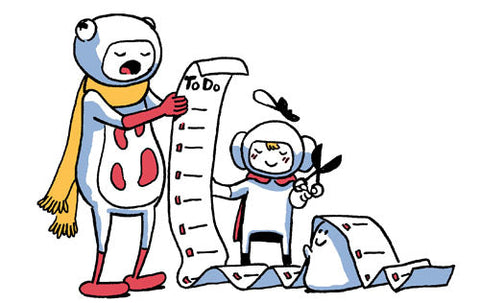Meetings, but mobile! More than just another gimmicky productivity ‘hack’... science says they're a powerful way to optimise your day.
Well, let’s take a look at the evidence. But first…
What is a walking meeting?
It sounds obvious. And it is very much what it says on the tin. A walking meeting is any type of meeting that takes place while on the move - but there are some variations on the theme. For example, you may take a stroll around the inside or outside of your office building, or you might choose somewhere more scenic.
The one thing we don’t recommend is using ‘walking meeting’ as code for ‘cramming an extra micro-meeting into the period of time you use to travel between two other meetings’ (unless those meetings are at least a 20-minute journey away and your attendees all need to get there, too)!
What are the benefits of walking meetings?
This is the interesting bit. Here’s what the research says.
First things first: sitting down all day is knocking years off of our lives (sorry!) Sitting for just two hours increases errors in problem-solving activities, decreases mental wellbeing and creates clinically meaningful discomfort in the lower back. And yes, that’s just two hours of sitting.
Prolonged sedentary behaviour is associated with reduced cognitive function and physical health-related quality of life as well as increased depression and disability.
So, err… those walking meetings are starting to sound pretty good, right?!
And what’s more, walking boosts creative thinking… and the effect continues even once they have sat down again. Bonus points if that walking takes place outside, too.
Oh, and walking meetings don’t cost anything at all to implement.
But don’t just take our word for it… apparently Aristotle, Freud, Steve Jobs, Harry S Truman and Charles Dickens were all big fans of working and walking - so you’ll be in good company.
What are the barriers to walking meetings?
First, it’s important to recognise that not everyone is able to take part in walking meetings. It won’t always be possible to tell by looking at someone if they aren’t able to, either - so ask people in private if it’s something they are able to do before booking anything in. And if they say no, don’t press them for more information - it could be personal!
There are other often-reported barriers, though, which can be addressed. The main one? That sitting is a deeply ingrained habit! It sounds like booking a walking meeting could help to overcome that habit, but it’s never that simple. Our brains love habits and will try to default to ‘normal’, so getting your team moving (and keeping them that way) could be harder than it sounds! You'll need to be persistent until the benefits pay off and a new habit is formed.
Walking meetings aren’t the only way to overcome the risks of a sedentary working life, by the way. Microbreaks are a surprisingly powerful trick to add to your toolbox, too!
How to do walking meetings
It’s really as simple as it sounds. All you need is a suitable meeting, willing participants and a route. You can work the route out in advance, or see where your feet take you! Green spaces are ideal, but anywhere that isn’t too busy or loud should do.
A suitable meeting is one that:
- Everyone is planning to attend in person.
- Does not require materials or note taking.
- Is not likely to result in highly charged emotions.
- Does not require privacy.
- Is not super technical or complex; problem solving and creative thinking are fine, but making complicated decisions or redesigning processes might require a more focussed environment.
- Is limited in numbers - two-person walking meetings are great, three is fine, four might be manageable. Five or more? Pretty much useless unless you’re a fan of yelling at each other.
- Lasts long enough to make it worthwhile (i.e., more than 15 minutes) but doesn’t last so long that you’ll be exhausted when you return. You can always start out walking and book a room for the last half!
Have a sift through your calendar and look for some suitable meetings to do on the move, and see where they take you!









